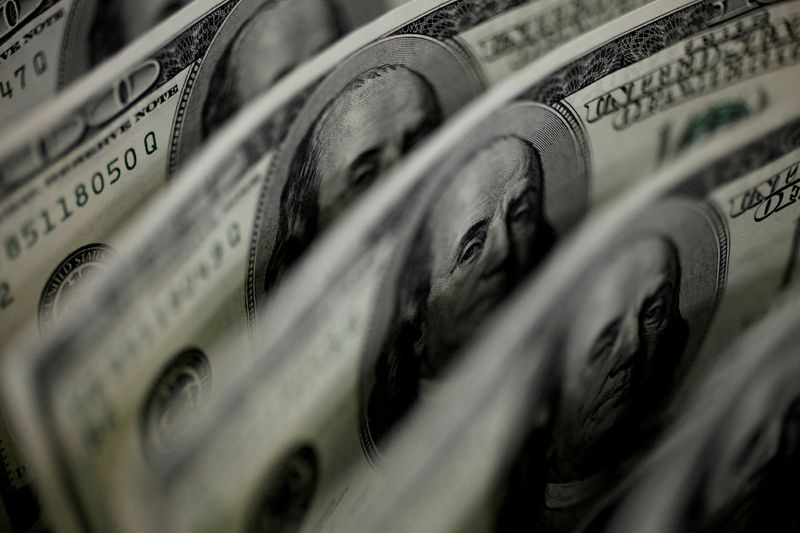By Joice Alves
LONDON (Reuters) - The U.S. dollar edged up on Friday but stayed near a three-month low and on track for a weekly loss as the prospect of the Federal Reserve slowing monetary policy tightening as soon as December preoccupied investors.
The euro was set for weekly gains with the GfK institute survey bringing some relief, showing on Friday that German consumer sentiment is expected to stabilise next month with the help of energy measures.
Risk-sensitive sterling was near a three-month high against the U.S. currency.
"We've still got the third successive day of positive risk sentiment ... I think that is keeping the U.S. dollar subdued pretty much across the board," said Ray Attrill, head of FX strategy at National Australia Bank.
Against a basket of currencies, the U.S. dollar index stood at 106.06, edging up 0.2% on the day, after thin trading on Thursday due to the U.S. Thanksgiving holiday.
Minutes from the Fed's November meeting released earlier this week showed that a "substantial majority" of policymakers agreed it would soon be appropriate to slow the pace of interest rate rises.
Those remarks sent the dollar tumbling as the Fed's aggressive rate increases and market expectations of how high the central bank could take them has been a big driver of the currency's 10% surge this year.
Supporting the dollar index, the Japanese yen slipped 0.5% on the day to 139.40 to the dollar, with core consumer prices in Japan's capital rising at their fastest annual pace in 40 years in November, exceeding the central bank's 2% target for a sixth straight month, government data showed.
The Fed aside, accounts of the European Central Bank's October meeting released overnight showed that policymakers fear that inflation may be becoming entrenched in the euro zone. While the ECB firmly committed to further rate rises, markets are now expecting a more modest 50 basis point move at the December meeting.
Against the dollar, the euro eased 0.1% to $1.0399, not too far from an more than four-month high of $1.0481 hit last week.
The New Zealand dollar fell 0.4% to $0.6239 but remained close to a three-month peak hit in the previous session. The kiwi was eyeing a weekly gain of more than 1.5%, aided by the Reserve Bank of New Zealand's 75 bp rate increase this week and its hawkish rate outlook.

China's central bank said on Friday it would cut the amount of cash that banks must hold as reserves for the second time this year, releasing about 500 billion yuan ($69.8 billion) in long-term liquidity to bolster the slowing economy.
The offshore Chinese yuan fell 0.25% to 7.1870 to the dollar and was headed for a second weekly loss, as COVID worries continued to weigh.